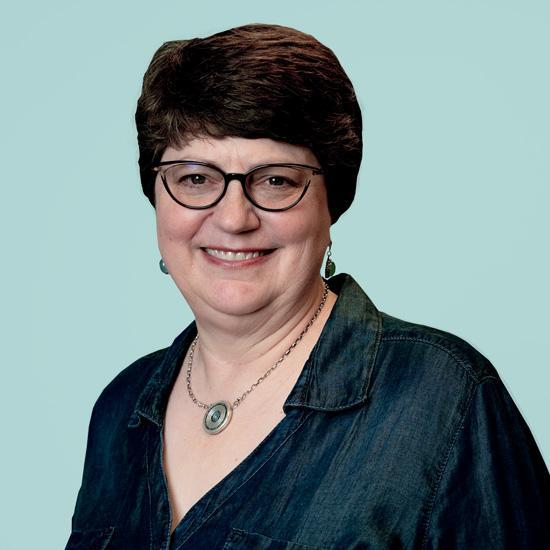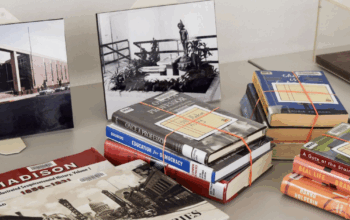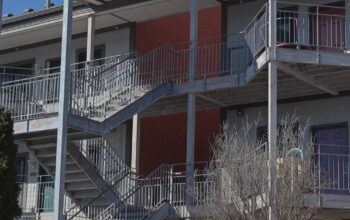Not every child has equal access to public education opportunities since disparities exist. To build a better community, Melinda Heinritz believes we need to support our kids so they all have the opportunity to get an education.
Madison Public Schools Foundation is a nonprofit organization that partners with public schools to change students’ lives by providing education opportunities. Instead of building schools and having teachers to teach classes, the foundation’s main mission is fundraising and building community partnerships to make sure every child can get an education. President Melinda Heinritz looks at disparity challenges in the district and how to create a more supportive community.
What do you think is the biggest challenge our community faces?
I think what I’ve experienced, and I’ve lived here over 20 years, is that it’s a great community, but there are a lot of distinct audiences and a lot of agendas across those audiences. So I think we, despite all of our best intentions, despite all of our meetings and our engagement around community voice, struggle to have a vision that we can all pull together in the same direction, and maybe give up some of that unique agenda to work together for a common good. I think it’s just that the community has lots of different voices and varying viewpoints. That isn’t necessarily a bad thing, but I think it makes it difficult for us to find common ground and pull in the same direction toward an identifiable, articulated and compelling community vision.
What do you wish people in our community understood better?
I think it’s news to the average person on the street how much the state of Wisconsin has disinvested in public K-12 (education) over the last 20, if not really 30, years. I’ll just give you one stat that helps to illustrate what I’m talking about. In 2009, the state of Wisconsin discontinued the practice of tying per pupil funding annually to inflation. That creates what we call internally the “inflation gap.” Just this school year, 2022-2023, if we had kept up with inflation at that entire time period, our school district would have another $80 million available to spend. And over the course of that entire 14 years, that’s been almost a $700 million loss in resources we might have had if we’d done nothing more than keep up with inflation. Often in the community the narrative around our public schools can be negative. There is a lot of misperception, we always have the attitude that every day, every school, every classroom there are great things that are happening. But we are trying to do that in an increasingly difficult set of circumstances, starting with just a complete lack of resources from the state to do the work that we need to do. So that’s probably part of what we are trying to do with our advocacy work, to ensure that more community members are aware of the challenges that our district faces, and every district across Wisconsin faces challenges based on what’s happened at the state level.
What is one change you would make if you could that would make life better for people in our community?
Madison is a relatively small place. Our city isn’t quite 300,000 people. It’s a place where state government, the Capitol, is here. We have a major flagship university. I think the ingredients are here if we could find that shared ground and that common vision to do a lot of great and exceptional things for all residents. I’m sure you’re familiar with the fact that there are pretty big disparities depending on who you are and where you live in this particular community. The scale of the issues that we have are things that we can overcome with the wealth that’s here — if we had the will to do it. Especially looking at birth to entry into 4K or 5K, if we had a way, if we had a vision to support families and kids to give them a great start, and for every one of our children going into that 4K or 5K setting to be completely ready and prepared to be a rock star reader, and to have the skills and the support to be literate and masterful around any content or any subject matter that they experience during their K-12 experience. But I think it starts with, how do we as a community work collectively to set families and kids up for a great start right from the beginning? That isn’t necessarily the Madison Public Schools Foundation mission, but we recognize that this is all part of a continuum, so to the degree we can be supportive of early childhood and early literacy, that interests us. That’s a great opportunity for our community, but it’s going to require some change to get there.
What in our community gives you hope?
People here have big hearts. I think people care deeply about the community. Working for public schools in Madison, Wisconsin, I know that people are willing to often step up as volunteers, or donors, or voters, or taxpayers. That’s not necessarily true in all communities, in all the cases of public school districts in different parts of the country. I think there is a lot of great intention, I think there are lots of conversations. So I think again, if we can find common ground and a collective vision to get behind, there are a lot of wonderful ingredients in place here to accomplish transformational activities on behalf of all residents. That always gives me hope. I do think people here genuinely care about the community and care about each other. That gets you more than halfway. We just have some other changes that need to happen in order to get a greater distance ahead. But I’m always optimistic!





